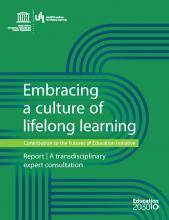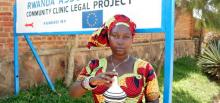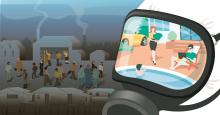UIL has just finalized and published a report, entitled ‘Embracing a culture of lifelong learning: contribution to the Futures of Education initiative’, which will we hope be of interest to subscribers and is attached. This report has been developed based on a transdisciplinary online consultation, which took place from 26 May to 12 June 2020.
Post date:
Saturday, 5 September, 2020























Latest Comments